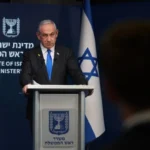The Big Day That Made History
New York City was getting ready for the day of 9/11, 2001, when a terrible chain of events began. The North Tower of the Twin Towers was struck by American Airlines Flight 11 at 8:46 AM. United Airlines Flight 175 collided with the South Tower at 9:03 AM. The Pentagon, a vital structure for American security, was struck by American Airlines Flight 77 at 9:37 AM. About 2,977 people died, and about 6,000 were hurt in these planned attacks, which were carried out by people with ties to Al-Qaeda and led by Osama bin Laden. The attacks caused a huge change in the way the world works, affecting not only foreign ties but also policies for keeping people safe at home.
Responses based on ideas to the attacks
After 9/11, the world seemed to split into four main groups based on their beliefs:
- The Pursuit of Justice: This group pushed for those guilty of the 9/11 attack to be held responsible and punished out of a strong sense of justice and vengeance.
- Outside Influences: People in this group joined the later battles because they felt pressured to, such as through threats, coercion, or cash incentives, rather than because they believed in what they were doing.
- Ambitious Plans: Some people saw the 9/11 attack as a chance to increase their power around the world, and they used the chaos that followed to further their plans.
- Direct Confrontation: This group confronted the conflict and dealt with its instant and long-lasting effects.
Even after the 9/11 attacks, these ideological differences have continued to affect how the world works.
Policy work and the 9/11 attacks

The events of 9/11 are some of the most closely watched in recent history. Although the official story says that Al-Qaeda carried out the 9/11 attack, there are many theories that U.S. intelligence agencies, such as the CIA, may have known about them ahead of time or been told but did not act on this information. In his book Deşifre (Decipher), former Turkish intelligence officer Mehmet Eymür said that he knew about a planned attack on the United States about 40 days before 9/11 and told the CIA about it in early August 2001. According to Eymür, the CIA wasn’t very interested and didn’t do much, which he says could have stopped the killings if they had. Read more about Eymür’s claims.

This claim supports the idea that U.S. intelligence services may have known about the killings ahead of time but failed to stop them. When the 9/11 Commission Report came out in 2004, it found many information failures and communication problems between U.S. organizations. The study pointed out issues with the system as a whole, like not enough teamwork and sharing of information, but it did not find any proof of a plot or willful negligence. Learn more about the 9/11 Commission Report.
Policy and Responses from the Military

After the 9/11 attacks, national security policies underwent major changes. For example, the Department of Homeland Security was created, and information gathering was reformed significantly. The U.S. also increased its military footprint in the Middle East. This led to both direct military engagements and a big rise in profits for the American arms business because more people wanted to buy military goods and services. Explore changes in U.S. national security policy.
In 2003, the U.S. attacked Iraq on the grounds that the country was looking for WMDs. Later, these claims were shown to be false, showing that the invasion was supported by false or confusing information. The invasion had terrible effects, including a lot of deaths and a humanitarian crisis. Between 200,000 and 300,000 civilians were killed or injured. After the war, Iraq was badly broken up and unstable, and there are still problems with security, government, and rebuilding.
Afghanistan’s War

Attacks on Afghanistan began on October 7, 2001, 26 days after the events of 9/11, 2001, when the United States and NATO launched Operation Enduring Freedom. This was the start of a 21-year war that killed a lot of people and had terrible effects on people’s lives. Heavy weapons like the MOAB (Mother of All Bombs) were used, which made the war even more extreme. Many people see the conflict’s destruction and suffering as a form of group justice, which raises moral questions about why such large-scale violence is necessary. Learn more about Operation Enduring Freedom.
More General Effects and Human Cost
The war affected more than just Afghanistan. It also affected Pakistan and a number of Arab and Muslim countries that the United States influenced. There was pressure on these countries to jail people, which led to many cases of abuse and forced kidnapping. The Rabbani brothers and Moazzam Baig are two well-known cases. They were abducted and later freed from Guantanamo Bay, but the abuse they suffered changed their lives forever.
One case that stands out is that of Dr Aafia Siddiqui. Siddiqui was kidnapped in 2003 while she was travelling with her children. She was later held by the U.S., charged with assaulting FBI agents, and given an 86-year prison term. In the wake of the war, her case brings up bigger questions of justice and responsibility. Find out more about Dr. Aafia Siddiqui.

The war in Afghanistan lasted for almost twenty years, killed about 200,000 people, and forced millions to leave their homes. About 1.5 million people looked for safety in Pakistan, and others moved to other places around the world.
Gains U.S. Get from War
Even though the 9/11 attacks had terrible effects on people and world politics, they did have some positive effects on the U.S.
- Increased safety: The Department of Homeland Security and the USA PATRIOT Act fortified American intelligence and national security.
- Strategic Military position: The U.S. increased its military position in the Middle East, which gave it more power in an area that is very important for world politics.
- Gains for the Defense Sector: With more attention paid to national security and military battles, the American arms business made more money because more people wanted military tools and services.
- Counterterrorism Expertise: The U.S. gained extensive experience and knowledge in operations against terrorism, which improved its ability to fight and react to terrorist dangers around the world.
Thoughts on the 9/11 Attacks
As we reflect on almost twenty years of war, it is important to question what happened and why the war went on for so long. Were the U.S. goals in its war against Afghanistan really met? Did the huge amount of damage and suffering make the war worth it? Because of the damage and the cost to people, these questions need to be looked at critically. As the search for solutions goes on, the need for understanding and accountability stays very important.
Read more updates, Follow The Update Times









